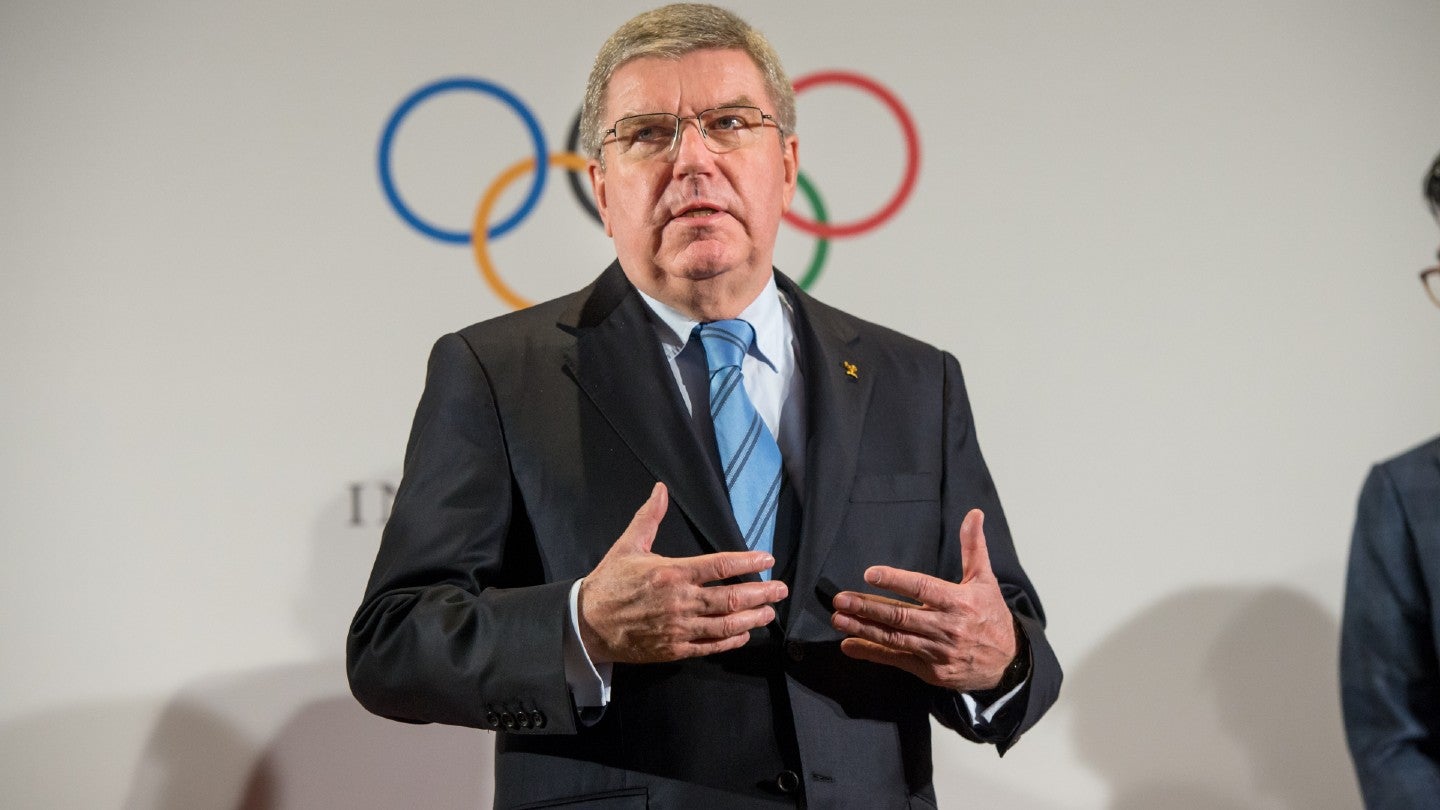
The International Olympic Committee (IOC) has recommended that athletes from Russia and Belarus be allowed to participate in international competitions under a neutral flag but has not decided on their involvement at the Paris 2024 games.
The recommendation, which was made by the IOC executive board (EB) at a meeting yesterday (March 28) following a four-month consultation period, is only for individual athletes and not teams.
The board comprises the leaders of all the stakeholder groups of the Olympic Movement and the International Paralympic Committee (IPC).
In addition, the EB informed international federations (IFs) and event organizers that athletes and support personnel who actively support the war in Ukraine, or who are contracted to the Russian or Belarusian military, cannot compete or be entered.
With regards to the Olympic Games in Paris next year and Milan-Cortina Winter Olympics in 2026, the IOC said it will make a decision about their participation “at the appropriate time, at its full discretion.”
The organization added that it will “closely monitor the full implementation of these recommendations by all parties concerned” and stated that the results of this monitoring procedure will be “an important factor” in its decision-making.
How well do you really know your competitors?
Access the most comprehensive Company Profiles on the market, powered by GlobalData. Save hours of research. Gain competitive edge.

Thank you!
Your download email will arrive shortly
Not ready to buy yet? Download a free sample
We are confident about the unique quality of our Company Profiles. However, we want you to make the most beneficial decision for your business, so we offer a free sample that you can download by submitting the below form
By GlobalDataIOC president Thomas Bach said: “Participation of athletes with Russian and Belarusian passports in competitions and in international competitions, works.
“We see this almost every day in a number of sports, most prominently in tennis, but we see it also in cycling.
“We see it in some table tennis competitions, in ice hockey, handball, football, and in other leagues – in the United States, but also in Europe, and we also see it in other continents.”
He added: “The governments on whose territory the competitions are taking place are issuing visas [to Russians and Belarusian athletes] with very few exceptions. In other countries, they’re even issuing working permits where it’s necessary for these players and athletes.”
Bach, however, insisted that the participation of Russian and Belarusian athletes at Paris 2024 was not considered either in the consultations or in its deliberations on Tuesday.
At the 11th Olympic Summit in December, the IOC agreed to explore a pathway to reintegrate athletes from the respective countries into competitions ahead of next year’s games after consulting with IOC members, athlete representatives, IFs, and National Olympic Committees (NOCs).
The Olympic Council of Asia (OCA) had offered Russian and Belarusian athletes the chance to compete in Asia and the matter was discussed at a recent EB meeting with the IOC saying it “welcomed and appreciated the offer.”
A reintegration of Russian and Belarusian athletes would represent a slight softening of the IOC’s stance, with it having recommended that athletes and officials from the two countries be banned from participating in international sports events, competitions, and tournaments following Russia’s invasion of Ukraine, assisted by Belarus, in February 2022.
At its meeting yesterday, the IOC did, however, reaffirm other sanctions against the nations, including bans on organizing or supporting events, the display of their flags, colors, or anthems, and the invitation or accreditation of their government or state officials to events or meetings.
The Olympic body extended its support for Ukraine and its athletes to compete at Paris 2024 and Milan-Cortina 2026 by tripling its solidarity fund for its NOC to $7.5 million.
However, Ukraine has threatened to boycott the Paris games if a ban on Russian and Belarusian athletes is not upheld.
In its deliberations, the IOC also stated that the “70 other ongoing armed conflicts and wars around the world” were also considered, including situations in the Middle East and the Horn of Africa.
It added that the NOCs in the regions impacted are not requesting the exclusion of athletes.
Image: Photo by Robert Hradil/Getty Images



